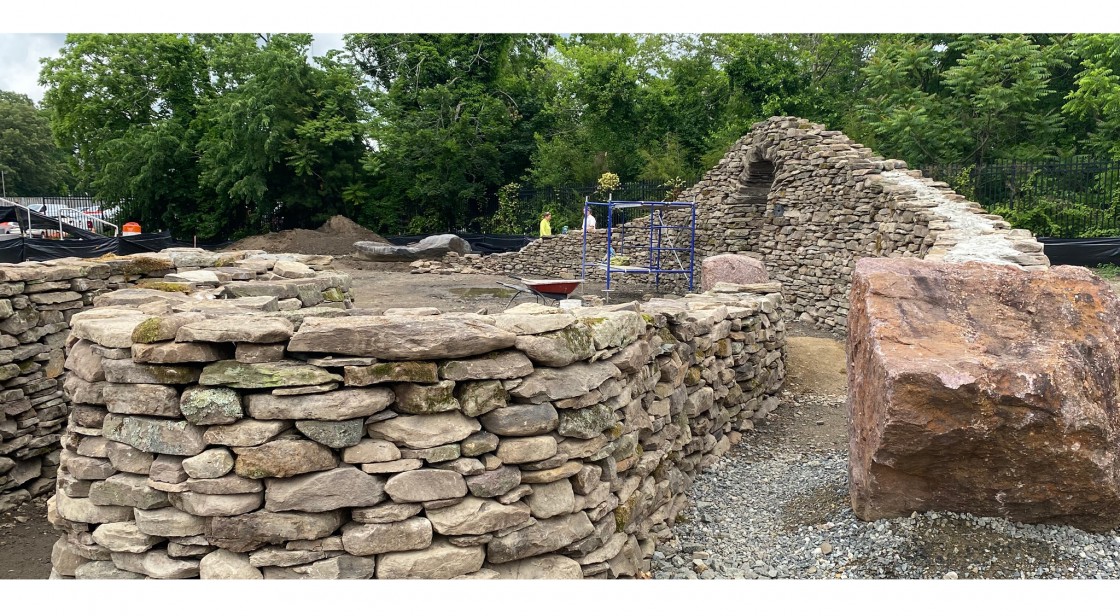It has been an exciting time at the Discovery Hall site on Rowan University’s Glassboro campus, where Thea Alvin’s Time Sweeps sculpture wall is now complete. Commissioned as part of the State of New Jersey’s Art Inclusion Program, the piece enhances the outdoor classroom designed on the east side of the project site. The concept of a site sculpture with boulders was envisioned by the Ken Lacovera, Dean of the School of Earth and Environment, as an experience where a science student could explore rock typologies and find an appreciation for art and an art student could study the art piece and learn about geology. Through a formal jury selection progress, the work and process of Thea Alvin embodied the parti and the University’s master plan initiative to create outdoor classroom space to showcase learning and sustainability.
The sculpture is built primarily of Pennsylvania Field Stone, containing fossils, moss, and lichen, and punctuated by boulders of three main stone types: igneous, sedimentary and metamorphic. Boulders were hand selected by the Dean and the Campus Landscape Architect from regional quarries. The build has occurred over the last four weeks by stone mason, designer, and artist Thea Alvin and her majority women team. Thea’s work is currently on display at the Rowan University Art Gallery through July 24th. You can see more progress photos and videos of the Time Sweeps wall on Thea’s Instagram and more her work on her website.
Discovery Hall is a new 67,560-square-foot academic building on Rowan’s campus housing the School of Earth and Environment and the College of Science and Math. From the concept/proposal phase, the guiding design principle was to connect the place of learning with the environment’s natural systems as an integral teaching tool to promote academic excellence as well as the health and well-being of the campus community at large. The Discovery Hall program and site have the unique opportunity to weave together landscape and learning; to embody the mission of not only the School of Earth and Environment, but the Sciences at large. KSS began the project in 2017; the building will open for in-person classes this Fall 2021.

